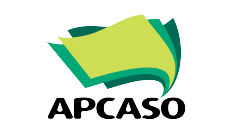
Siem Reap – The first of a series of workshops on the evolution of CCM was organized by The Global Fund Secretariat from August 29-30. The workshop invited CCM members from nine countries: Bhutan, Cambodia, Papua New Guinea, The Philippines, Sri Lanka, Thailand, Timor-Leste, Kazakhstan, and Montenegro. APCASO was invited as a one of the two non-CCM members present at the meeting.
The workshop intended to provide a platform to discuss alignment of the CCM with the new Global Fund Strategy, specifically looking at CCM models that worked in different contexts and country scenarios, reviewing of CCM roles in the country, and identifying areas of strengthening in light of country transition from Global Fund financing. To prepare for the meeting, APCASO led an informal online discussion with its focal points and partners a week before the meeting took place to get their perspectives and viewpoints to bring into the Siam Reap meeting.
At the meeting, key points that surfaced and were raised by APCASO and key population communities and civil society representatives are the following:
- While CCMs guarantee spaces for key population communities and CS to participate, there is a need for stronger policies, processes, and guidance, and more investments towards strengthening KP and CS participation within CCMs, given the low rated eligibility performance across many CCMs under this area.
- Spaces and seats for key population communities and CS must continue to be a priority as CCM models get evolved.
- The role of the LFAs must be revisited, possibly expanding their responsibility to include reporting back to the CCM leadership and oversight committee, as well as in assessing performance and implementation
- Strengthening CCM leadership, oversight committee, and CCM Secretariat staffing is important in ensuring strong CCMs, including in making sure that CCMs are inclusive of key population communities and civil societies and community and CS reps within CCMs are well-capacitated to perform expected roles
- A strong recommendation to have a differentiated key population community and CS representation participation guidelines for the three diseases, especially for malaria communities
- Support to integrate CCM in broader country mechanisms to expand its mandate beyond the three diseases particularly for countries in transition or preparing to transition
- Emphasis on the need to make sessions on community, rights, and gender (CRG) as central elements of CCM orientation processes that are planned to be rolled out by the Global Fund Secretiat, in line with their moves to evolve the CCM
The Global Fund CRG Department also presented at the meeting a new but critical policy guidance for CCMs: that 15% of CCM funding should be allocated towards implementation of key population and civil society CCM engagement plans. This information will be further circulated to key stakeholders with the help of the regional CRG Communication and Coordination Platforms, the new hosts of which are to be announced soon.
Results of the workshop will inform the CCM Evolution Paper that will be presented at the 38th Global Fund Board Meeting in November.
“It was relatively easy to have CS and KP points accepted in the room – we came prepared, the Global Fund Secretariat [staff] were facilitative, we CS and KP participants reinforced each others’ messages, and we didn’t face any opposition. The question is how to ensure our feedback translates into the output document that is presented to, and gets approved by, the Global Fund Board.”
